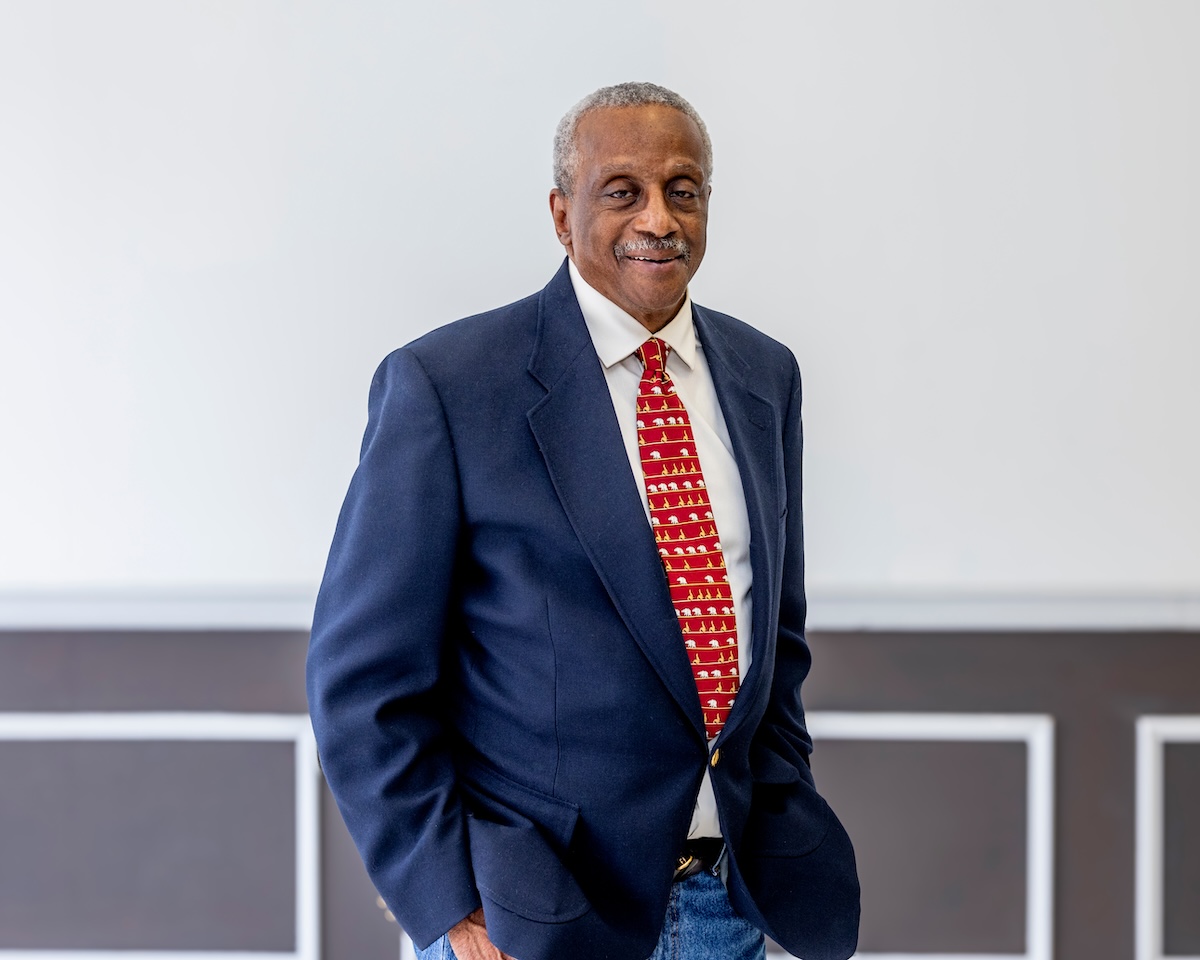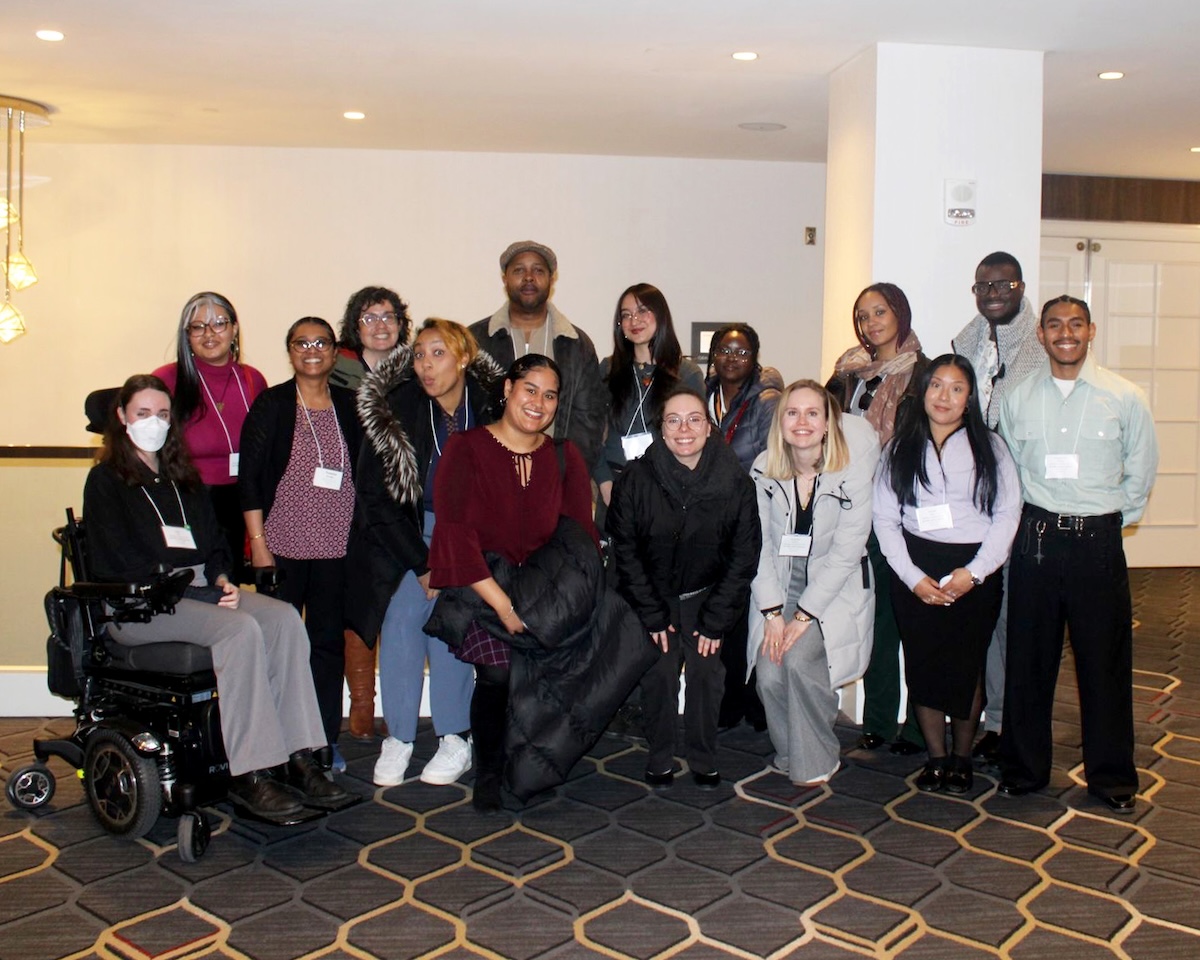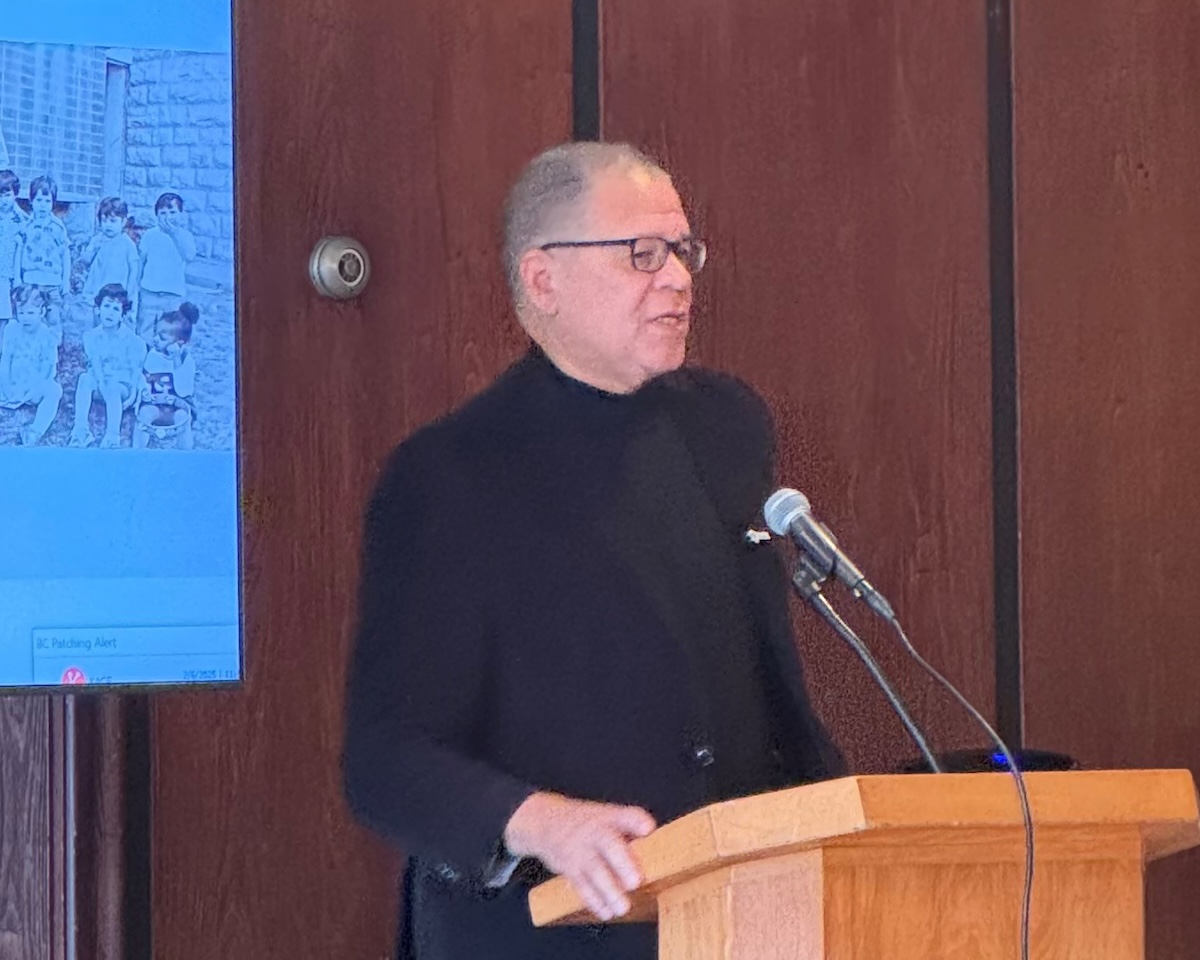Before Damon Evans ’19 graduated from Brooklyn College with a degree in Africana Studies, he had a successful career as an actor and singer, co-starring in the iconic 1970s sitcom The Jeffersons and performing on Broadway and classical music stages worldwide. Born and raised in Baltimore during a time when being gay and out to one’s family was much less common than it is today, Evans strove to live his authentic life. The young singer was working in New York City when one of the most seminal events in gay history, the Stonewall Inn uprising of June 28, 1969, occurred.
Here, he talks about his early love of opera that spurred his true calling as a classical singer, his decision to return to college, and his advice to the younger generation.
How did you get started singing?
I was living in Baltimore as a teenager with my grandparents in the 1960s, and I was afforded the opportunity through a scholarship to attend a private boarding school called Interlochen Arts Academy my senior year of high school. I studied voice at the academy’s music camp. After I graduated, I started my own opera company in Baltimore—The Baltimore Chamber Opera.
Right out of high school?
Yes. I was 17. In 1967, we presented a double opera bill of Gian Carlo Menotti’s The Medium and The Telephone at the Arena Playhouse in Baltimore—the second-oldest Black community theater group in the United States after the Karamu Playhouse in Cleveland Ohio—with a return engagement by popular demand that included excerpts from George Gershwin’s opera Porgy and Bess. It’s important to know that all the participants were African Americans between 17 and 22. Two of those singers ended up at the Metropolitan Opera.
At a time when it was challenging at best, you were out as a gay man?
I knew at a very young age that I was gay. There was a lot of homophobia in my family to deal with. Early on I was conscious of the fact that I was a Black gay male representative in whatever I did on stage. And although my family never made an effort to get past their prejudices about homosexuality, they did instill some very positive qualities and truths in me: Once you get in the door, you have a responsibility. Once you’ve surveyed the territory and made your contribution, you bring in the next person.
You were an eyewitness to a seminal moment in history for the LGBTQ community.
Yes, the Stonewall Inn uprising. I was 19, living in New York City and working at Radio City Music Hall in 1969. I operated the elevators there. I’ve always been an avid reader. On the corner of the Monster Bar across the street from the Stonewall Inn in the Village was this bookstore, not an adult bookstore but a regular bookstore, a frequent haunt of NYU students. That’s where I bought Alain Locke’s The New Negro and Dostoevsky’s Crime and Punishment. It was a Saturday and I had gotten off work around nine o’clock. I rode the subway down to Sheridan Square. The uprising had happened in the early morning hours. All I can remember is that the atmosphere was different—tense. I remember seeing people of color, and at that time, we were not welcome down there.
So you were taking chances being there at the intersection of race and sexuality.
Yes. The most marginal people were protesting—butch lesbians, drag queens, street kids. They were the ones who fought back that night when the police raided the Stonewall. There were moments of rejoicing that, at last, we had stood up for ourselves. The gay playwright Doric Wilson said, “This was our Rosa Parks moment, the one we had been waiting for.” Once the protests became broader and more organized, you saw images of White gays on flyers and posters. But you’ve got to give credit to the most marginalized people who fought that night, and people of color were included.
You went from stage to television screen with the role of Lionel on The Jeffersons—must-see TV at the time.
I had initially auditioned for the role of JJ in another Norman Lear show, Good Times, so when I was called to Los Angeles to audition for The Jeffersons, Norman remembered me and liked me from earlier, and I got the part without the required screen test.
Your career as a classical singer began in earnest after you left television?
There was The Jeffersons and the mini-series Roots: The Next Generation, the sequel to Roots in 1979, in which I starred as Alex Haley. In 1983, I won the role of Sportin’ Life in George Gershwin’s Porgy and Bess in Chicago. We were two weeks in when I was attacked on stage in the middle of a performance. My attacker, Michael V. Smartt played the starring role of Porgy. I remember being escorted off stage after the incident and saying that I couldn’t go back on, to get my understudy ready. I don’t know why he attacked me—possibly jealousy over my television career.
You didn’t go back?
No, I couldn’t. The irony is that my singing career would never have happened without those two weeks in Chicago. Not long after I quit, I got a call from Alec Treuhaft from Columbia Artists; their classical label was CAMI. They had seen me in Chicago and wanted me to meet people who were in from London. I met the great theater director Trevor Nunn CBE, conductor Sir Simon Rattle, and artistic director Brian Dickie. They looked at my résumé and said, what is The Jeffersons? I reprised my role of Sportin’ Life at the world-famous Glyndebourne Festival in 1986. The point is, they wanted me for my talent, not my television success.
I made my Lincoln Center debut in Phillip Glass’ opera Akhnaten. I auditioned one afternoon for the great soprano Beverly Sills and her staff. Within five weeks, I found myself in rehearsals and standing on the stage of the New York State Theater. I had no time to be nervous because it all happened so quickly.
Although I had appeared at Lincoln Center I instinctively knew that being black, and gay, and a television actor that my career as a classical singer would take off overseas. From there I made my debut with the London Symphony Orchestra in the first Leonard Bernstein Festival. I also sang as a soloist with the Toronto Symphony Orchestra, the Berlin Philharmonic Orchestra, the Boston Pops Orchestra, and soloed at Carnegie Hall among other great venues.
What made you decide to go back to college?
I started my academic life at Bronx Community College at the invitation of Dr. Carolyn G. Williams, president of the college. Over the years I was in and out, in and out. I finally finished my associate degree in 2016. When it came to getting my bachelor’s degree, Brooklyn College was a no-brainer—for me it was always at the top of the CUNY system. And although I had always wanted to attend an HBCU, I felt I had a mini-HBCU with professors Lynda Day, George Cunningham, Prudence Cumberbatch, Rosamond King, and Dale Byam of the Africana Studies Department. But the genesis of seeking a bachelor’s degree, particularly in Africana studies, was thanks to my grandparents, primarily from my grandfather. After I graduated from high school, my grandmother gave me a gift—a European tour. She wanted me to have cultural enrichment and to be able to compete with White students. My grandfather had an eighth-grade education, yet the man was a prolific reader. My interest in and love of Black history and culture comes from him.
Now you are writing a memoir.
Yes. Professor Byam had been after me to do so. And it wasn’t until after I had graduated and was off campus that I felt I could do it. I did a Zoom presentation for the Africana Studies Department in April 2021, which was open to everybody. Afterward, people kept saying, oh, are you going to write a memoir? Are you going to do a one-man show? And that’s what prompted me because up until then, I not only sat on my story, but I also didn’t think I had a story to tell.
What do you want to tell today’s students?
Back when I was growing up, for me to compensate for the fact that my family could not accept I was gay, I did all these things to prove myself to them and be the “star” of the family. I was always judged by the latest achievement. So when I retired from performing, I felt like a failure. My husband put up all of these pictures on our wall showing my accomplishments throughout my life, and it wasn’t until then that it sunk in what I had achieved, and I owned it. It’s about enjoying the journey and embracing the process even when it’s not smooth. Own what you’ve accomplished. In the end, when that curtain comes down, it’s the work you leave behind. That is your legacy.



